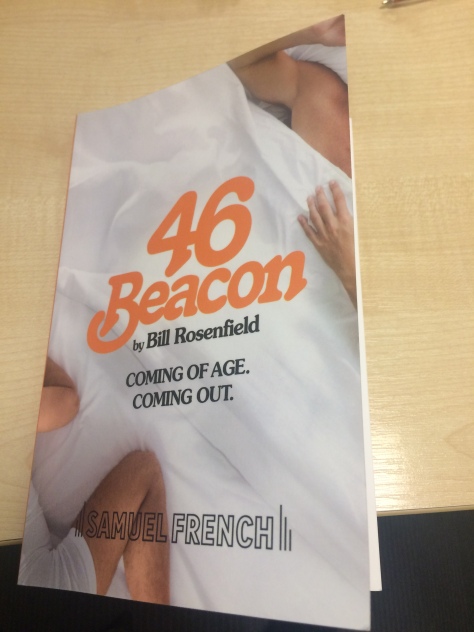TRAFALGAR Studios is off the beaten track for most West End theatre goers, especially tourists.
This isolation might explain why the two auditoria theatre, situated within spitting distance of 10 Downing Street – and yes, Trafalgar Square – strives harder than some to host commanding theatre productions.
In recent years, stand out productions include Harold Pinter’s The Homecoming (coruscating), Robert Icke’s take on Oresteia (breath-taking) and most recently Sam Shepard’s brutal Buried Child with a sublime performance from Ed Harris as the curmudgeonly and hard drinking Dodge.
Yet there is more to Trafalgar Studios than the headline plays which are acted out in its main theatre. Go down to the basement and you will find the intimate Studio 2 (as well as a well-stocked bar). An unexpected treasure trove of low key but exciting theatre.
Studio 2’s plays tend to be more cutting edge than upstairs and are often transfers from fringe theatres (The Hope Theatre in Islington or the Finborough Theatre in Chelsea) which have received rave reviews.
An example of this was last year’s Easy to be Dead, written by Neil McPherson, which transferred from the Finborough.
The latest ‘transfer’ is 46 Beacon, a play by Bill Rosenfield, which was performed last year at The Hope Theatre.

It is based around two themes – self-esteem (or lack of it) and the emerging gay scene of the 1970s (pre Aids) – and two characters, Robert and Alan.
Robert is the good looking Brit who has come out to Boston, Massachusetts, to revitalise his acting career – and to recover from a breakdown in his relationship with Paul (a picture of whom he keeps next to the double bed in the hotel on Beacon Hill).
Alan, who works part-time for the theatre Robert is appearing at, is young (younger than Robert thinks), slim, intense and slightly awkward.
The first half of the play involves the slow seduction of Alan. Robert plies him with gin and tonic, parades before him provocatively in his pyjamas (and no knickers) and massages his feet. He is relentless but Alan initially resists.
Indeed it takes a while for him to acknowledge his homosexuality. Admitting he ‘jerks off’ to his Dad’s supply of Playboy magazines, he then qualifies his comment by saying he looks at the men’s fashion ads and thinks about them.
It is compulsive viewing, erotic on occasion and cringing at other times. Of course Robert finally gets his way – but not before the lights are dimmed so the conquest is left to our imagination.
With the seduction complete, the rest of the play is spent exposing Robert’s insecurities (his acting and fractured love life) and highlighting Alan’s shock at realising he has been used purely for sex.
When Alan challenges him on this, Robert says: ‘No, I fucked you. I didn’t marry you. We fucked. That’s it.’ Alan is no more than another notch on the bedpost of his sprawling double bed.
Jay Taylor is magnificent as Robert, the seducer. Calculating, relentless, predatory but charming with it. He is also endowed with good looks.
Oliver Coopersmith is not far behind as Alan. All questions and full of contradictions.
By the end of the play, it is Alan who appears the stronger of the two. The experience has catapulted him into manhood. Robert suddenly appears the more vulnerable of the two.
46 Beacon is a fascinating play. 83 minutes that fly by. My experience was slightly ruined by the noise emanating from upstairs (I was not the only one to complain about it afterwards). But it is to Mr Taylor and Mr Coopersmith’s credit that it did not dampen the sexual chemistry between them.
Another great play from Trafalgar Studios. On a roll, I would say.
Thank you for reading! Please like, comment and share
http://www.atgtickets.com
http://www.thehopetheatre.com
http://www.finboroughtheatre.co.uk
Also read:
3 thoughts on “Sexual Healing – 46 Beacon (Theatre Review)”